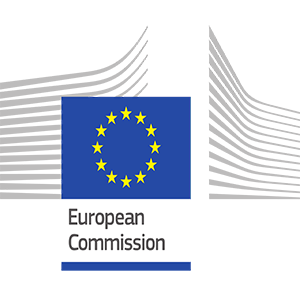The European Commission has sent a Statement of Objections to Gazprom alleging that some of its business practices in Central and Eastern European gas markets constitute an abuse of its dominant market position in breach of EU antitrust rules.
On the basis of its investigation, the Commission’s preliminary view is that Gazprom is breaking EU antitrust rules by pursuing an overall strategy to partition Central and Eastern European gas markets, for example by reducing its customers’ ability to resell the gas cross-border. This may have enabled Gazprom to charge unfair prices in certain Member States. Gazprom may also have abused its dominant market position by making the supply of gas dependent on obtaining unrelated commitments from wholesalers concerning gas transport infrastructure.
Gazprom now has 12 weeks to reply to the Statement of Objections and can also request an oral hearing to present its arguments. The Commission will fully respect Gazprom’s rights of defense and carefully consider its comments before taking a decision. Sending a Statement of Objections does not prejudge the final outcome of the investigation.
EU Commissioner in charge of competition policy Margrethe Vestager said: “Gas is an essential commodity in our daily life: it heats our homes, we use it for cooking and to produce electricity. Maintaining fair competition in European gas markets is therefore of utmost importance.
All companies that operate in the European market – no matter if they are European or not – have to play by our EU rules.
I am concerned that Gazprom is breaking EU antitrust rules by abusing its dominant position on EU gas markets. We find that it may have built artificial barriers preventing gas from flowing from certain Central Eastern European countries to others, hindering cross-border competition. Keeping national gas markets separate also allowed Gazprom to charge prices that we at this stage consider to be unfair. If our concerns were confirmed, Gazprom would have to face the legal consequences of its behaviour.“
The Commission’s preliminary findings in the Statement of Objections
Gazprom is the dominant gas supplier in a number of Central and Eastern European countries. In light of its investigation, the Commission’s preliminary view is that Gazprom is hindering competition in the gas supply markets in eight Member States (Bulgaria, the Czech Republic, Estonia, Hungary, Latvia, Lithuania, Poland and Slovakia). The Commission finds that Gazprom implements an overall abusive strategy in these gas supply markets, in particular:
- Gazprom imposes territorial restrictions in its supply agreements with wholesalers and with some industrial customers in above countries. These restrictions include export bans and clauses requiring the purchased gas to be used in a specific territory (destination clauses). Gazprom has also used other measures that prevented the cross-border flow of gas, such as obliging wholesalers to obtain Gazprom’s agreement to export gas and refusing under certain circumstances to change the location to which the gas should be delivered. The Commission considers these measures prevent the free trade of gas within the European Economic Area (EEA).
- These territorial restrictions may result in higher gas prices and allow Gazprom to pursue an unfair pricing policy in five Member States (Bulgaria, Estonia, Latvia, Lithuania and Poland), charging prices to wholesalers that are significantly higher compared to Gazprom’s costs or to benchmark prices. These unfair prices result partly from Gazprom’s price formulae that index gas prices in supply contracts to a basket of oil product prices and have unduly favoured Gazprom over its customers.
- Gazprom may be leveraging its dominant market position by making gas supplies to Bulgaria andPoland conditional on obtaining unrelated commitments from wholesalers concerning gas transport infrastructure. For example, gas supplies were made dependent on investments in a pipeline project promoted by Gazprom or acceptingGazprom reinforcing its control over a pipeline.
The Commission’s provisional findings are that these practices constitute an abuse of Gazprom’s dominant market position prohibited by Article 102 of the Treaty on the Functioning of the European Union (TFEU). Such behaviour, if confirmed, impedes the cross-border sale of gas within the Single Market thus lowering the liquidity and efficiency of gas markets. It raises artificial barriers to trade between Member States and results in higher gas prices.
Background
The Commission opened formal proceedings against Gazprom on 31 August 2012. Gazprom is the dominant natural gas supplier in all Central and Eastern European countries, with market shares well above 50% in most, and in some countries up to 100%.
Article 102 TFEU prohibits the abuse of a dominant market position, which may affect trade between Member States. Implementation of this provision is defined in the Antitrust Regulation (Council Regulation (EC) No 1/2003), which can be applied by the Commission and by the national competition authorities of EU Member States.
A Statement of Objections is a formal step in Commission investigations into suspected violations of EU antitrust rules. The Commission informs the parties concerned in writing of the objections raised against them and the parties can reply in writing of the objections raised against them. The addressees can examine the documents in the Commission’s investigation file, reply in writing and request an oral hearing to present their comments before representatives of the Commission and national competition authorities. The Commission takes a final decision only after the parties have exercised their rights of defence.
There is no legal deadline for the Commission to complete antitrust inquiries into anti-competitive conduct. The duration of an antitrust investigation depends on a number of factors, including the complexity of the case, the extent to which the undertaking concerned cooperates with the Commission and the exercise of the rights of defence.
- For more information, you may consult the public case register on the Commission’s competition website under the case number 39816.
Source: European Commission

